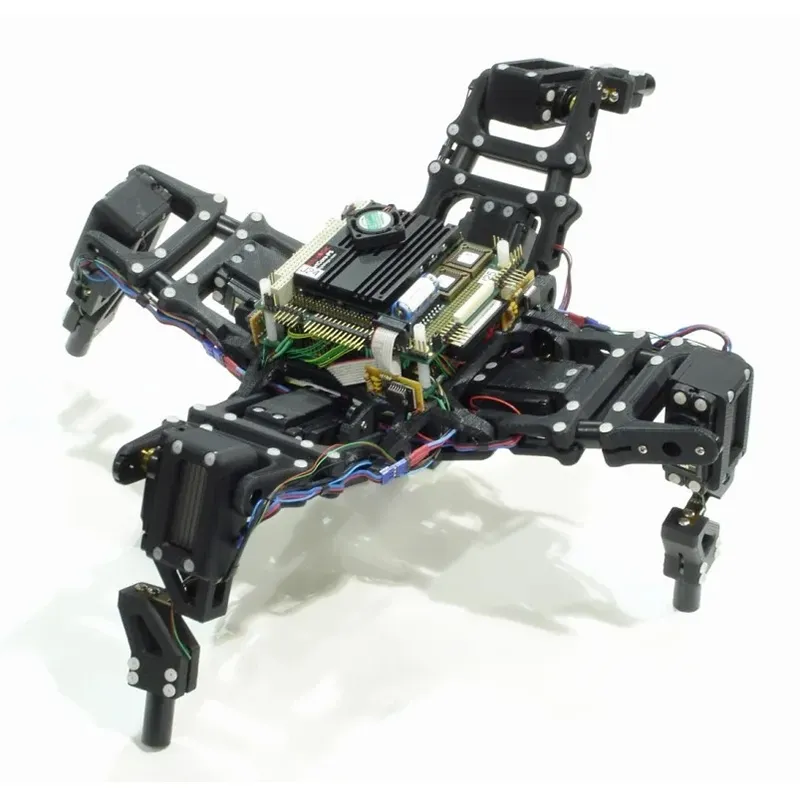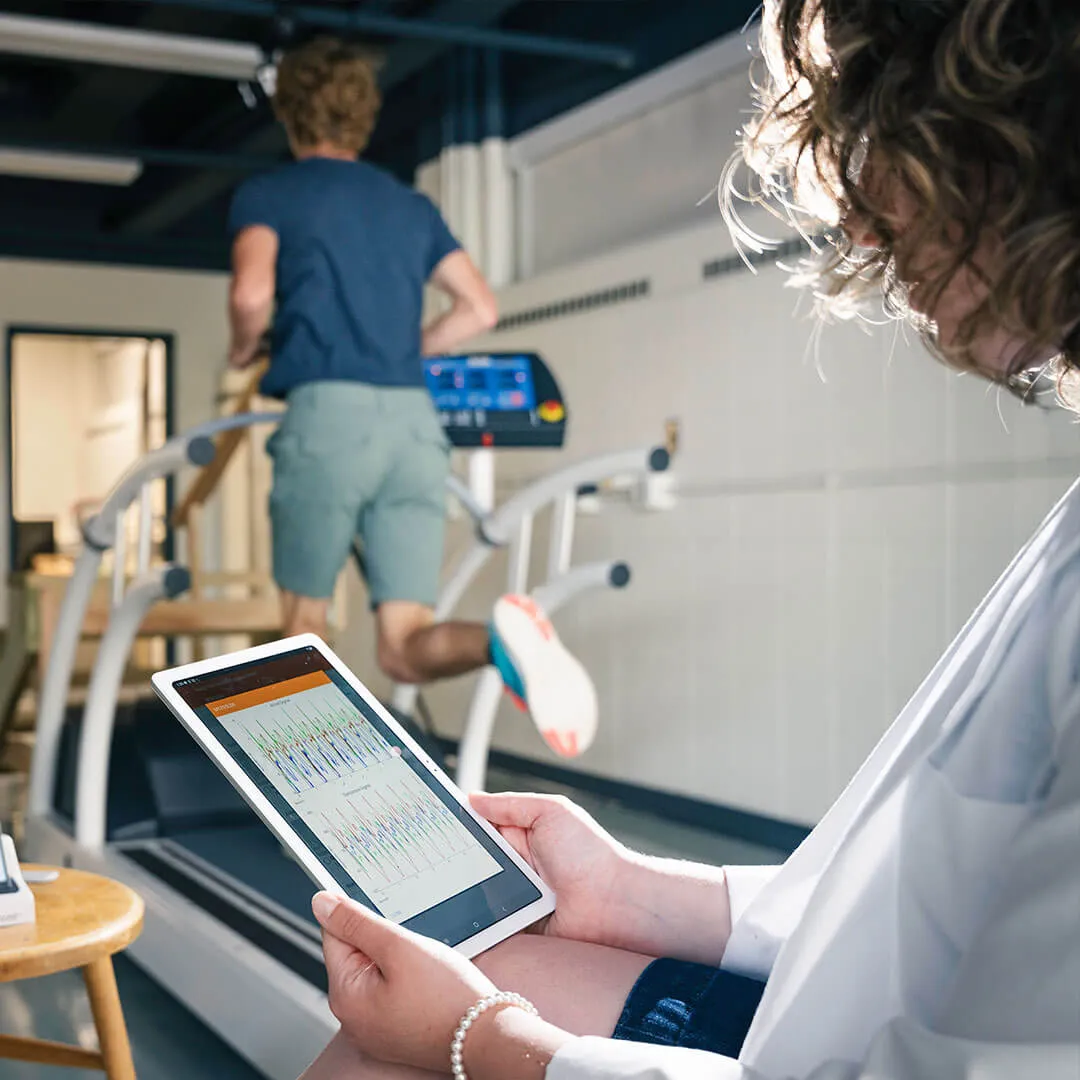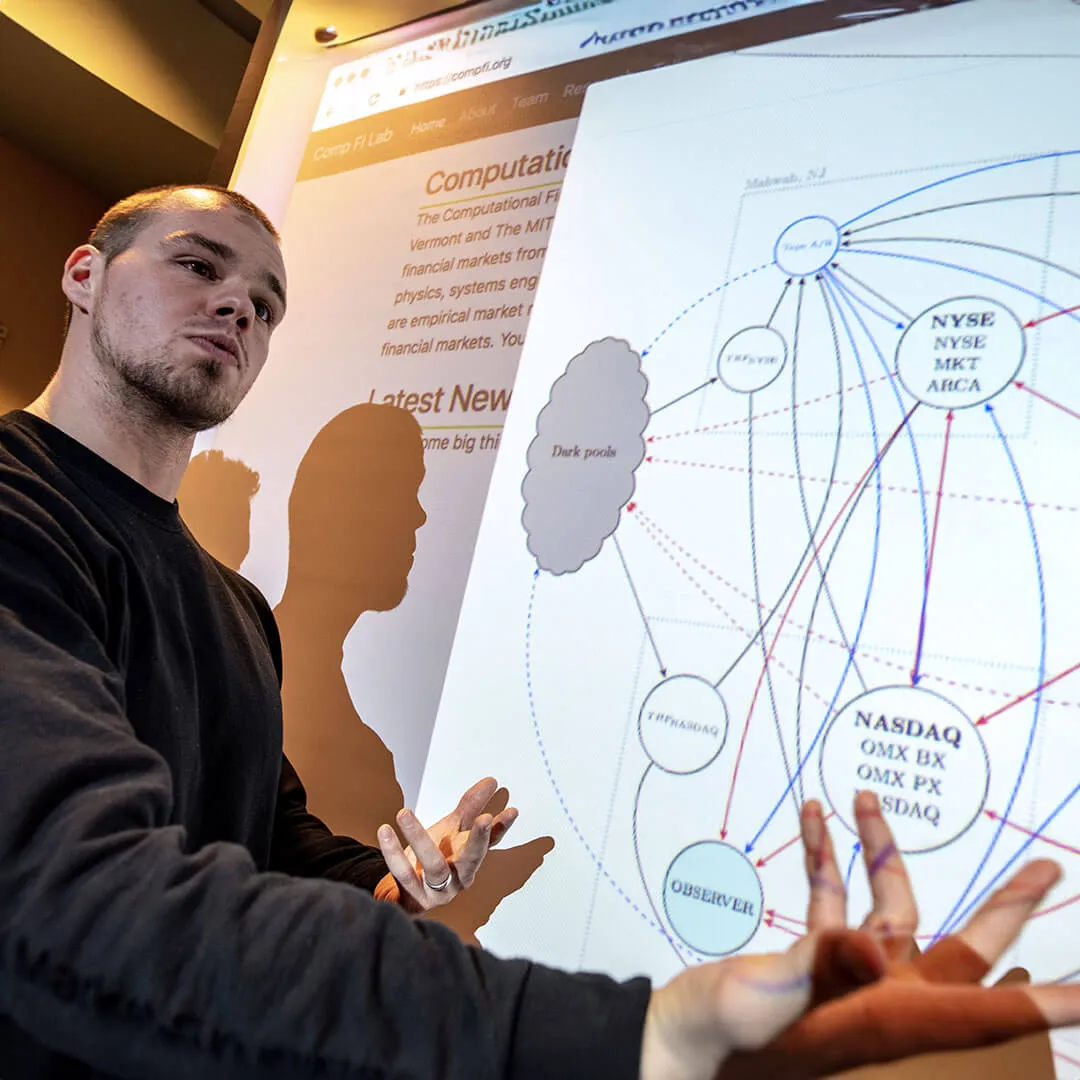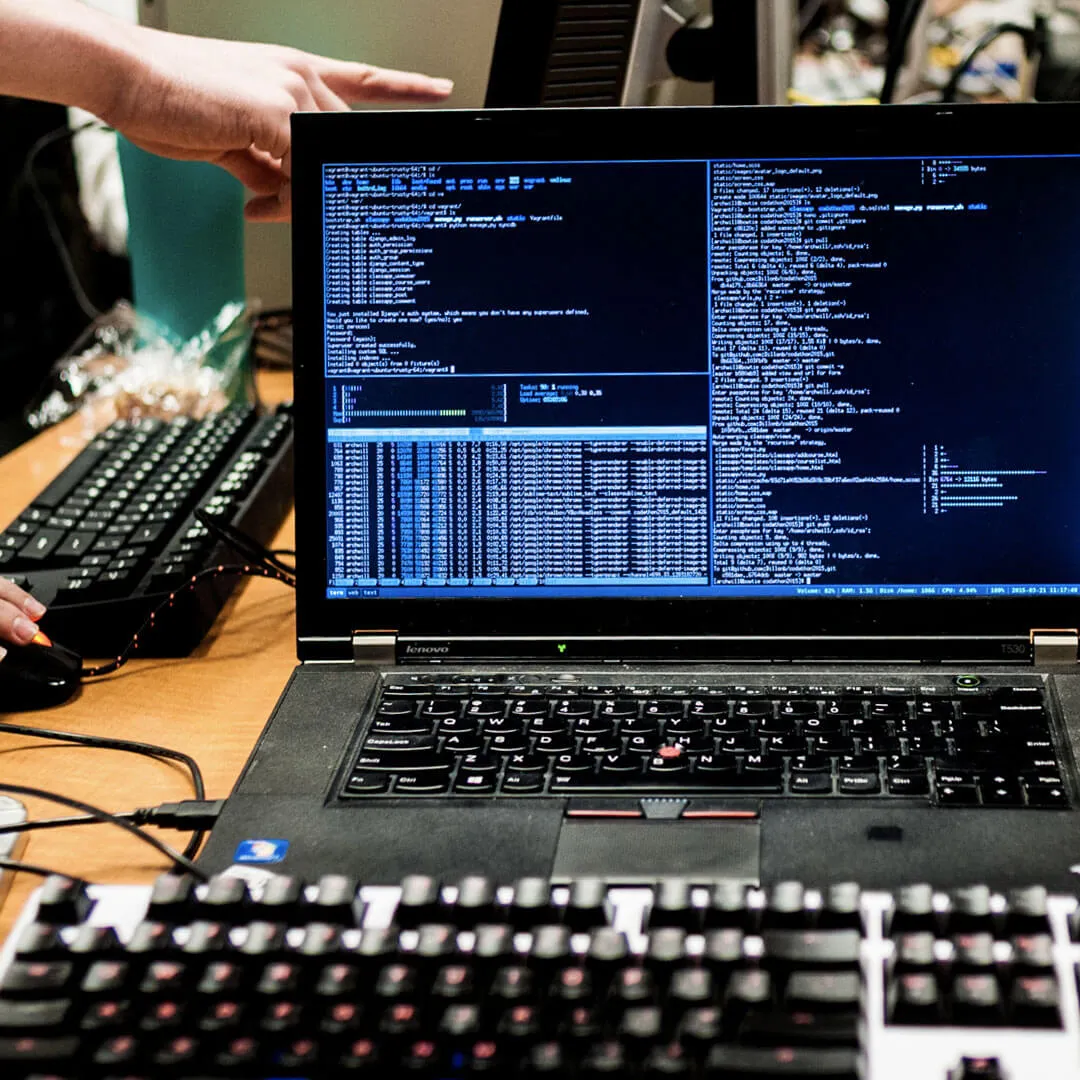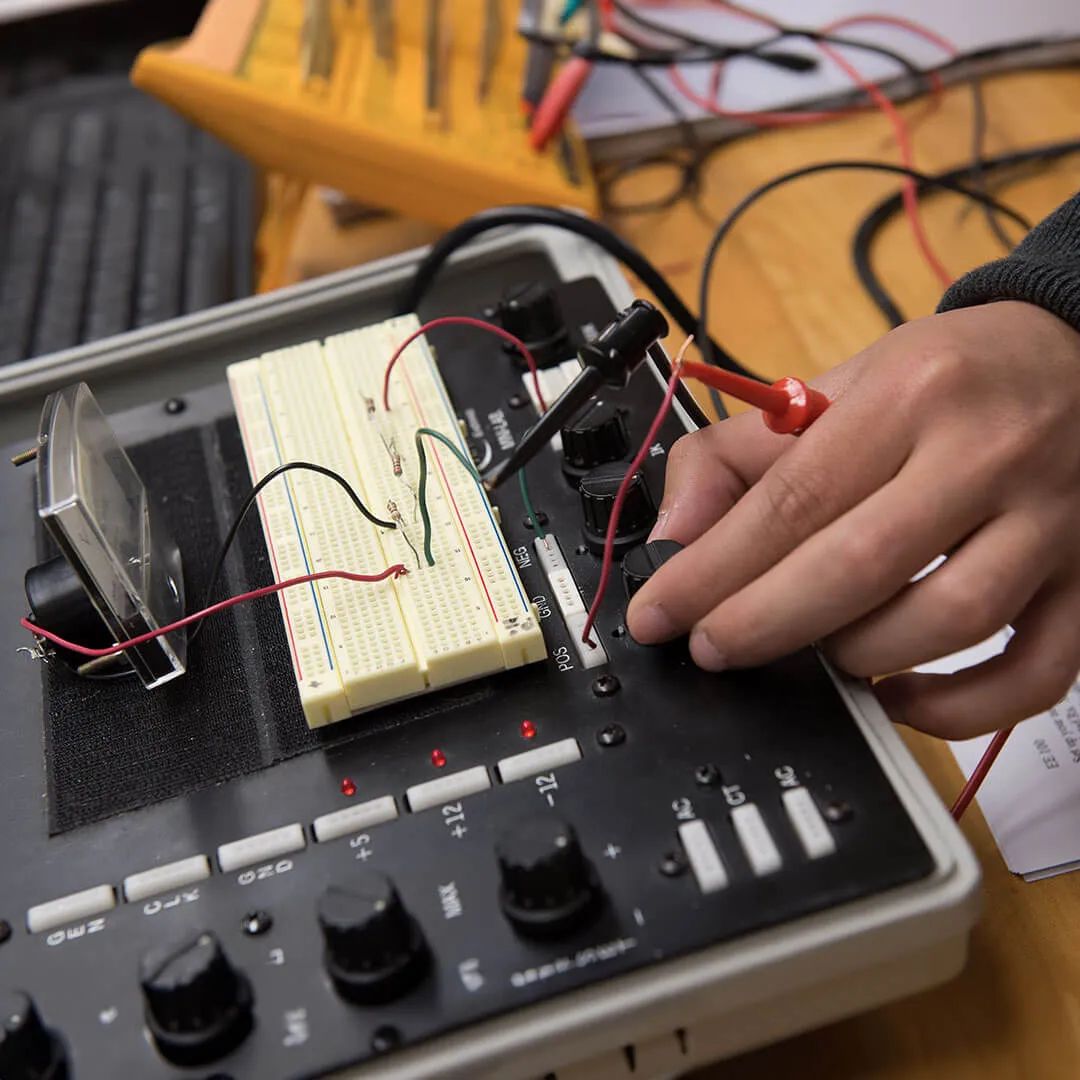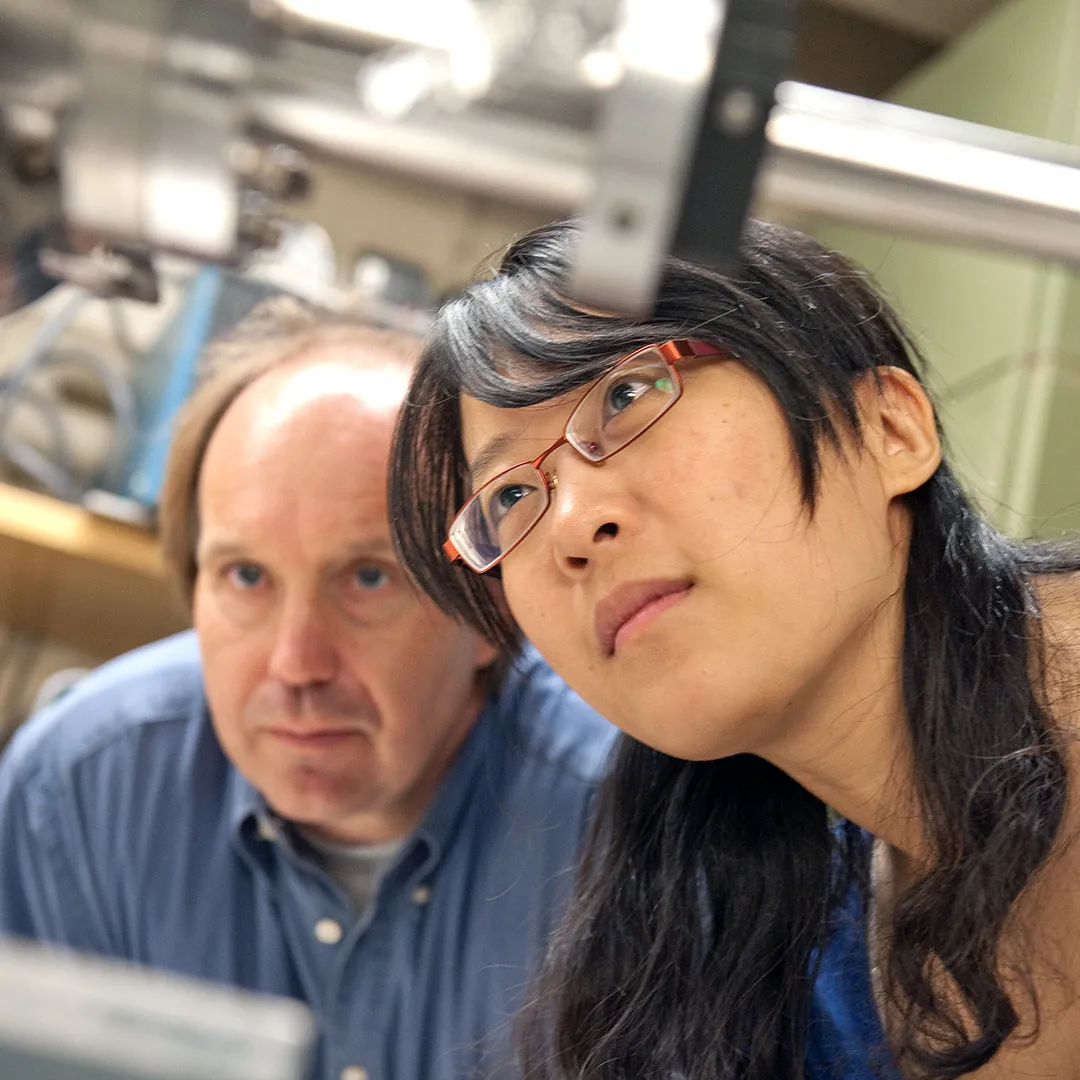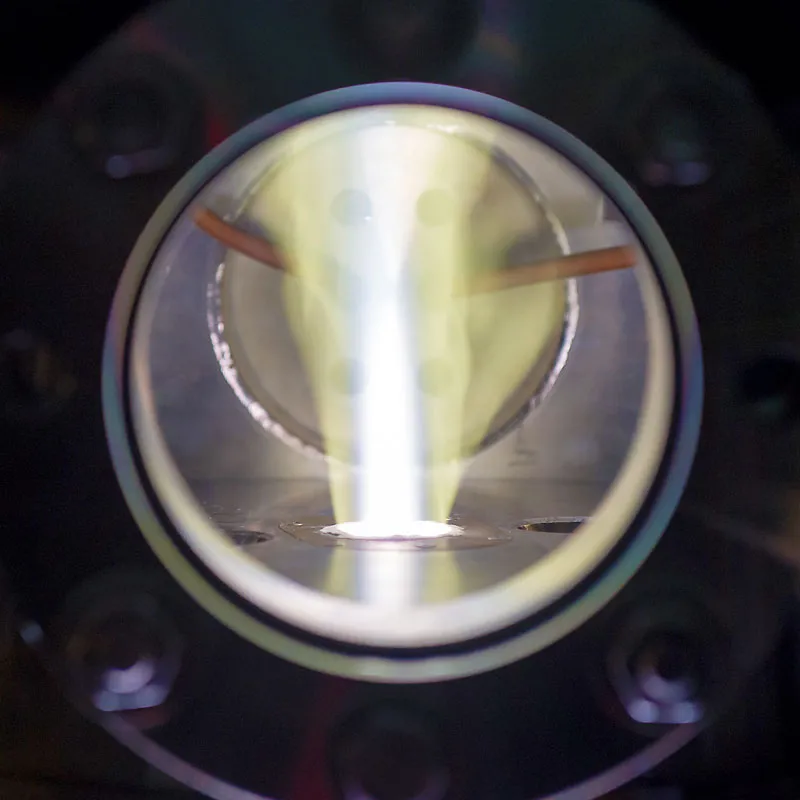Intro
Advancing our world
At CEMS, our world-class research programs extend far beyond the walls of the college. We engage in extensive interdisciplinary work with our colleagues in the Larner College of Medicine, the Rubenstein School of Environmental, and a broad range of departments and programs within UVM. Whether the work is in artificial intelligence, computer security, advanced biomaterials, or environmental engineering, the research work our students engage in contributes to important advances throughout the state and across the globe.
UVM students, graduates, and faculty continue to heed the call for new solutions to challenging problems, and we actively recruit committed, curious minds to be part of the effort.
UVM students, graduates, and faculty are heeding the call for new solutions to challenging problems. We’re actively seeking committed, curious minds to be part of the effort. Join us.
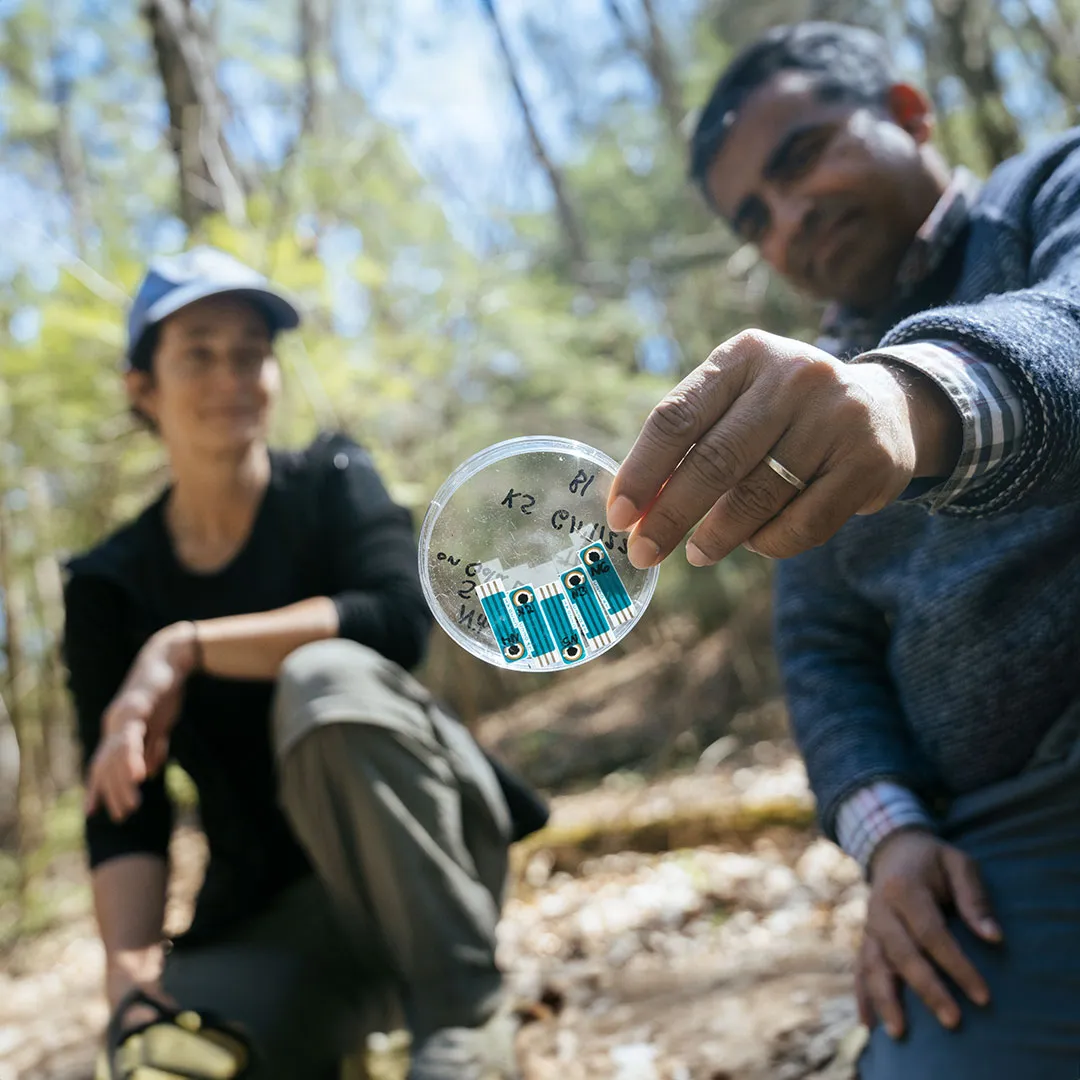
Civil and environmental engineering
The environmental engineering group works on the modeling of pollution transport in stream and lake water, groundwater, and the atmosphere. The group performs both experimental sampling work, as well as lab experiments and theoretical modeling, and interacts closely with colleagues across campus.
Water innovation for the future Gund Institute for Environment Transportation Research Center